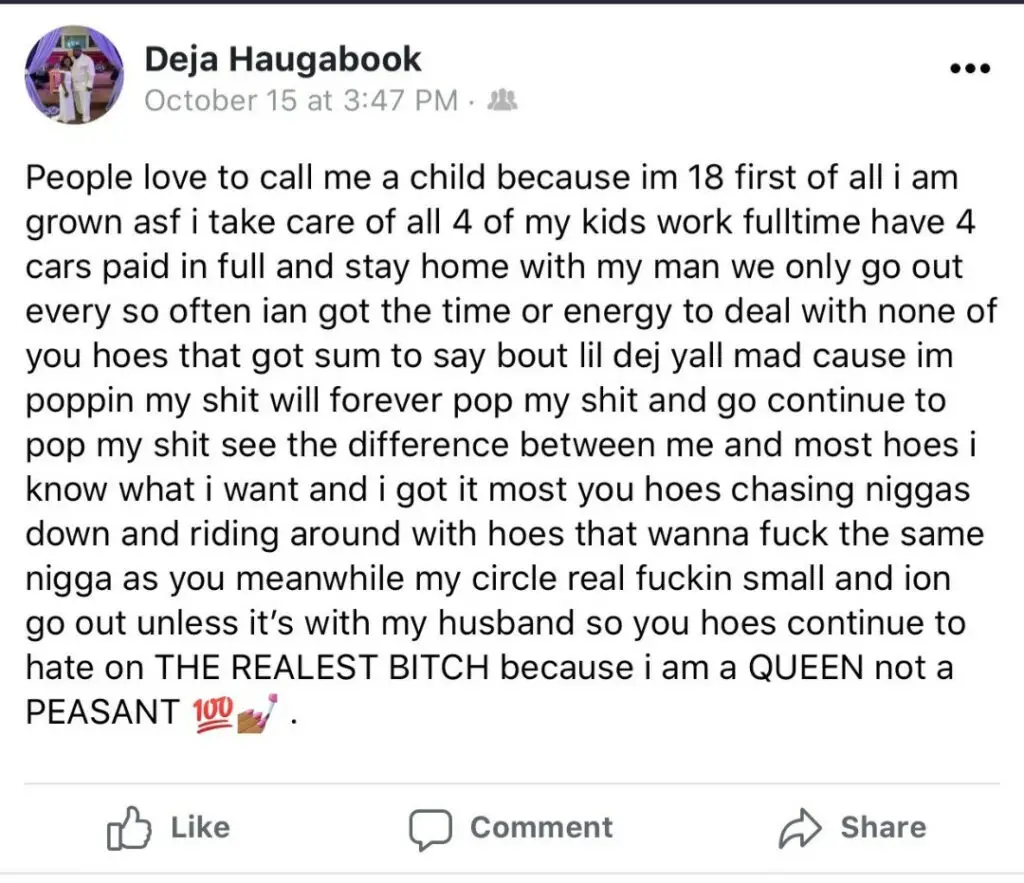So here we are, diving deep into the fascinating world of deja haugabook. Now, let me ask you something – have you ever had that strange feeling where you're absolutely certain you've lived through a moment before? Like, you're having dinner with friends and suddenly it hits you – this exact conversation, this exact setup, you've experienced it before. Well, my friend, you're not alone. Deja haugabook is a phenomenon that's been intriguing scientists, psychologists, and regular folks like you and me for ages. And today, we're going to uncover everything you need to know about it.
But wait, let's pump the brakes for a second. Before we dive headfirst into the deep end, let's clarify what deja haugabook really is. It's not just some random feeling or coincidence. No way. This is a genuine psychological experience that has roots in how our brains process memories and perceptions. Think of it as your brain playing a little trick on you, but in a good way. Like when you're watching a movie and suddenly you're like, "I've seen this before!" except it's real life. Crazy, right?
Now, why should you care about deja haugabook? Well, here's the thing. Understanding this phenomenon can give you insights into how your mind works. It's like peeking behind the curtain of your own consciousness. And who wouldn't want to know more about that? Plus, it's just plain cool to be able to drop terms like "deja haugabook" in a conversation and sound super smart. So stick around, because we're about to embark on a wild ride through the twists and turns of this mysterious experience.
Read also:Liverpool Clothing The Ultimate Style Guide For Football Fans And Fashion Enthusiasts
What Exactly is Deja Haugabook?
Alright, let's get down to business. Deja haugabook, often mistaken for its more famous cousin deja vu, is a unique experience where you feel like you've lived through a specific moment before. But here's the kicker – it's not just a fleeting sensation. No way. It's a deeper, more immersive experience that can last anywhere from a few seconds to several minutes. Imagine walking into a room and feeling like you've been there before, even though you know you haven't. That's deja haugabook in action.
Studies suggest that around 70% of people experience deja haugabook at least once in their lives. That's a lot of folks feeling like they're living in a time loop. And while it might sound like something out of a sci-fi movie, it's actually a common occurrence. Researchers believe it's linked to how our brains process memories and perceptions. Think of it as a little glitch in the matrix, but one that's completely natural.
Common Causes of Deja Haugabook
Now that we know what deja haugabook is, let's talk about why it happens. There are several theories floating around, but here are the most common ones:
- Memory Overlap: This theory suggests that deja haugabook occurs when our brain mistakenly overlaps a current experience with a past memory. It's like when you're reading a book and suddenly you're like, "Wait, didn't this happen before?" except it's real life.
- Sensory Mismatch: Another theory is that deja haugabook happens when there's a mismatch between what we see and what we remember. Like when you're watching a movie and the sound doesn't quite sync with the visuals. Your brain tries to reconcile the difference, and boom – deja haugabook.
- Temporal Lobe Activity: Some researchers believe that deja haugabook is linked to increased activity in the temporal lobe of the brain. This part of the brain is responsible for processing memories and emotions, so it makes sense that it could be involved in this phenomenon.
How to Recognize Deja Haugabook
Recognizing deja haugabook might seem easy, but it's not always that straightforward. Here are some signs to look out for:
- A Strong Sense of Familiarity: If you suddenly feel like you've been in a situation before, even though you know you haven't, that's a big red flag.
- Increased Awareness: During a deja haugabook experience, you might find yourself hyper-aware of your surroundings. It's like your brain is on high alert, trying to make sense of what's happening.
- Emotional Response: Many people report feeling a range of emotions during deja haugabook, from confusion to excitement. It's like your brain is trying to tell you something important.
Deja Haugabook vs. Deja Vu: What's the Difference?
Understanding the Key Differences
While deja haugabook and deja vu might sound similar, they're actually quite different. Deja vu is a fleeting sensation that usually lasts only a few seconds. It's like a quick flash of familiarity that passes just as quickly as it comes. Deja haugabook, on the other hand, is a more immersive experience that can last much longer. Think of deja vu as a quick glimpse in the rearview mirror, while deja haugabook is a full-blown road trip down memory lane.
Why Does the Difference Matter?
Understanding the difference between deja haugabook and deja vu can help you better understand your own mind. It's like knowing the difference between a headache and a migraine. Both might feel similar at first, but they require different approaches to manage. So if you're experiencing deja haugabook, don't just brush it off as deja vu. Take a moment to really explore what's happening in your mind. You might be surprised by what you discover.
Read also:Bitchin Sauce The Spicy Secret Every Foodie Needs To Know
The Science Behind Deja Haugabook
Now let's get scientific for a moment. Research suggests that deja haugabook is linked to several areas of the brain, particularly the hippocampus and the temporal lobe. These areas are responsible for processing memories and emotions, which makes sense given the nature of deja haugabook. Studies have shown that people with certain neurological conditions, like epilepsy, are more likely to experience deja haugabook. This suggests that there's a physiological component to this phenomenon that we're only just beginning to understand.
Deja Haugabook in Popular Culture
Deja Haugabook in Movies and TV Shows
Deja haugabook has been a popular theme in movies and TV shows for years. Think of films like "The Matrix" or "Inception," where characters experience moments that feel like they've lived through them before. These stories tap into our natural fascination with deja haugabook and the mysteries of the mind. They also highlight the potential for deja haugabook to be used as a plot device, adding layers of complexity to the story.
Deja Haugabook in Literature
Literature has also embraced deja haugabook as a theme. Authors like Mark Twain and Charles Dickens have written about characters who experience moments of deja haugabook. These stories often explore the deeper psychological implications of deja haugabook, delving into questions about memory, perception, and reality. It's like deja haugabook is a literary device that allows writers to explore the human condition in new and exciting ways.
Managing Deja Haugabook
Techniques to Cope with Deja Haugabook
If you're experiencing deja haugabook, there are several techniques you can use to manage it:
- Mindfulness: Practicing mindfulness can help you stay grounded in the present moment, reducing the intensity of deja haugabook experiences.
- Journaling: Writing about your deja haugabook experiences can help you process them and gain insights into your mind.
- Talk Therapy: If deja haugabook is affecting your daily life, consider talking to a therapist. They can help you understand and manage your experiences.
When to Seek Professional Help
While deja haugabook is generally harmless, there are times when it might be worth seeking professional help. If you're experiencing deja haugabook frequently or if it's interfering with your daily life, it might be a sign of an underlying neurological condition. A healthcare professional can help you determine if there's a deeper issue at play.
Deja Haugabook and Mental Health
There's a growing body of research suggesting a link between deja haugabook and mental health. People with anxiety or depression might be more prone to experiencing deja haugabook. This could be due to the way these conditions affect memory and perception. On the flip side, experiencing deja haugabook might also contribute to feelings of anxiety or confusion. It's a bit of a chicken-and-egg situation, but one that's worth exploring further.
Conclusion: Embrace the Mystery of Deja Haugabook
So there you have it – everything you need to know about deja haugabook. From its causes and effects to its place in popular culture, we've covered it all. Remember, deja haugabook is a natural and fascinating phenomenon that can give you insights into how your mind works. So the next time you experience it, don't just brush it off. Embrace it. Explore it. And most importantly, enjoy the ride.
Now, here's where you come in. Got any deja haugabook stories of your own? Share them in the comments below. Or if you're feeling extra adventurous, check out some of our other articles on the mysteries of the mind. The more we learn, the better we understand ourselves. And isn't that what it's all about?
Table of Contents
- What Exactly is Deja Haugabook?
- Common Causes of Deja Haugabook
- How to Recognize Deja Haugabook
- Deja Haugabook vs. Deja Vu: What's the Difference?
- The Science Behind Deja Haugabook
- Deja Haugabook in Popular Culture
- Managing Deja Haugabook
- Deja Haugabook and Mental Health
- Conclusion: Embrace the Mystery of Deja Haugabook


